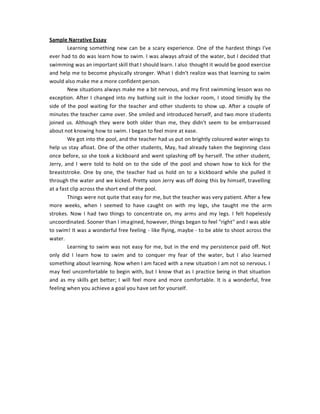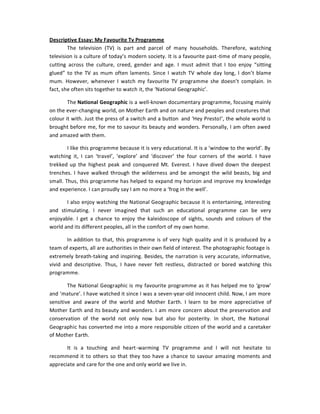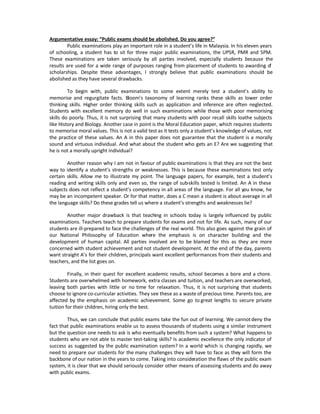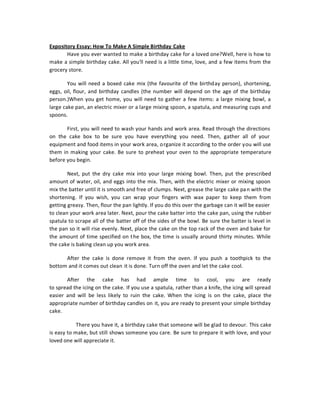The narrative essay describes the author's experience learning to swim as a child. It discusses their initial fear of water and reluctance, but how with patience and practice from their teacher they were eventually able to swim. The author learned not just how to swim physically but also gained confidence through conquering a new challenge. They realized challenges can be overcome through persistence and practice.
The descriptive essay discusses the author's favorite TV program, National Geographic. They find it educational and it allows them to virtually travel the world and expand their knowledge. It is high quality and entertaining while still being informative. Watching it has helped the author mature and become more aware and appreciative of the world.
The argumentative essay discusses whether public exams



